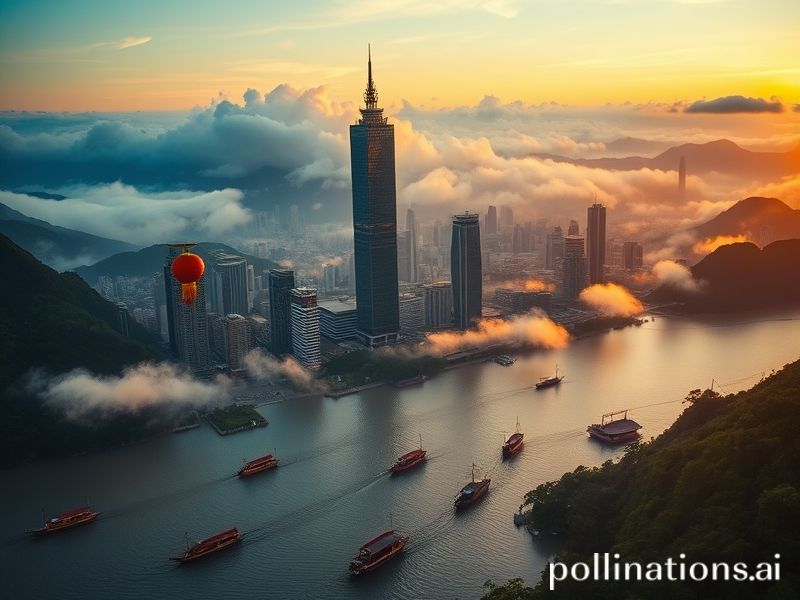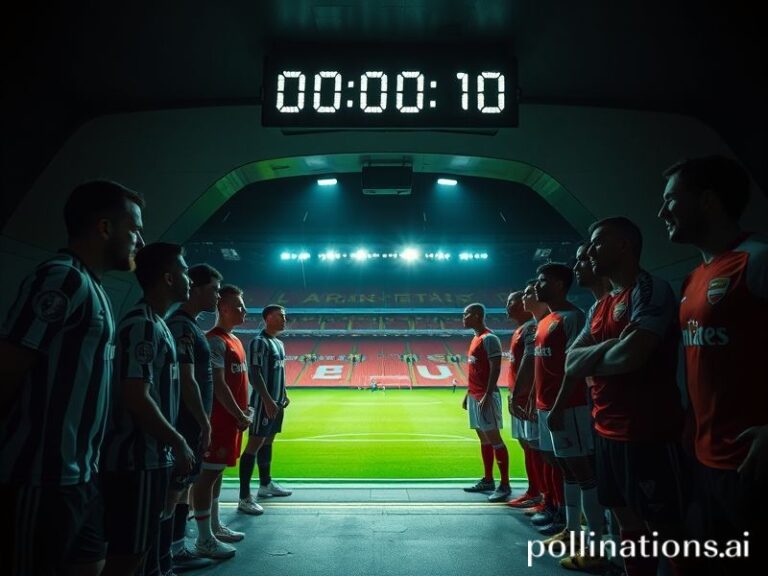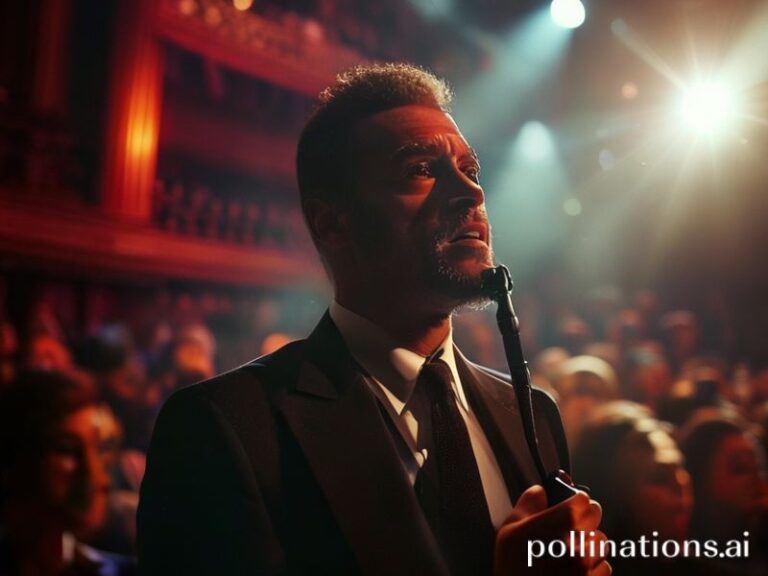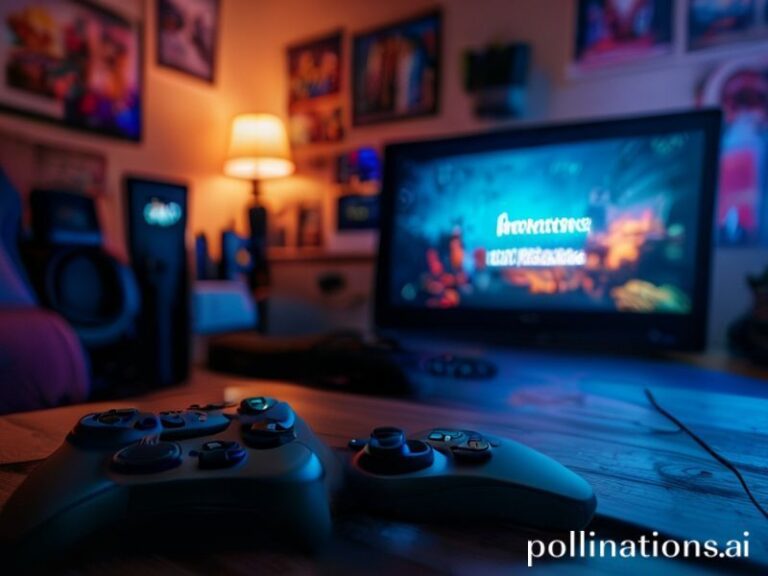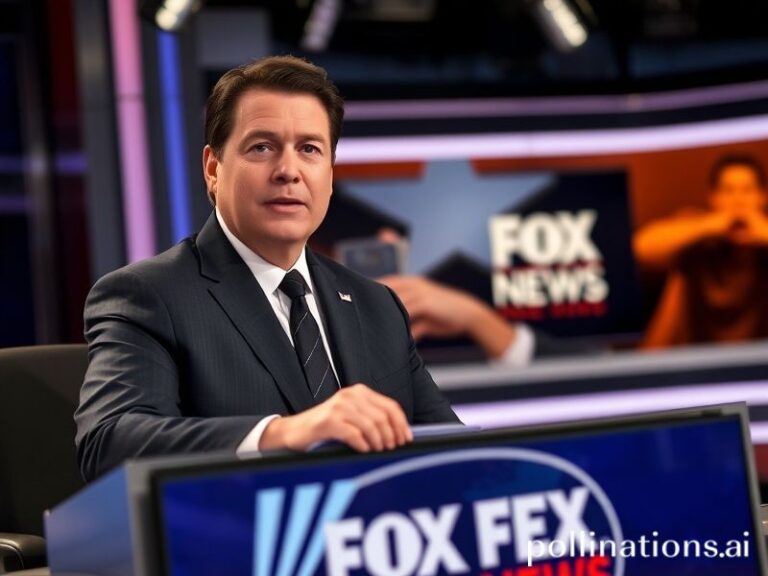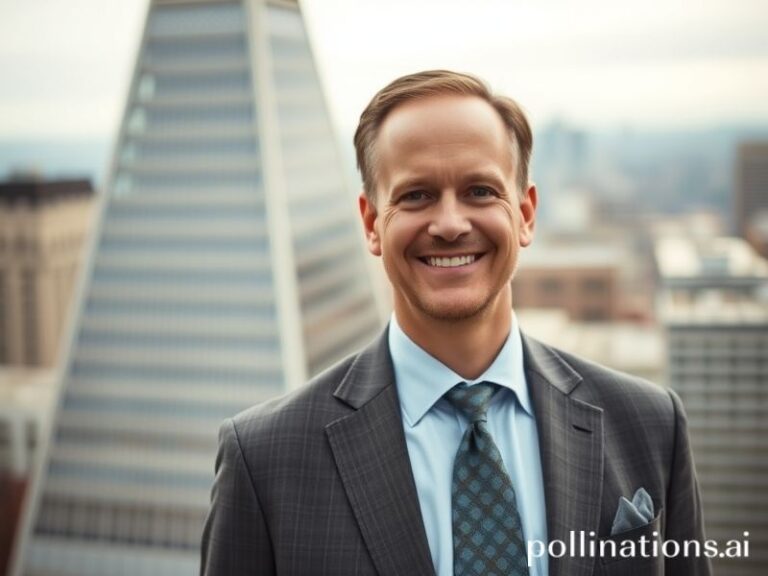Taiwan: The Awkward House-Sit Holding the World Together
The island of Taiwan—about the size of Maryland, with the population of Australia and the geopolitical baggage of a dozen empires—has spent the last seventy-odd years perfecting the world’s most awkward house-sit. Technically it’s still the Republic of China, but after 1949 Beijing decided to rebrand as the People’s Republic, leaving Taipei holding the keys to a mansion it can neither fully occupy nor politely vacate. Cue seven decades of polite diplomatic coughing whenever anyone asks who really owns the furniture.
To the casual observer, Taiwan is simply that place that makes 63 % of the planet’s microchips and 100 % of your laptop’s moral anxiety. TSMC’s fabs—clean rooms so sterile they could re-virginize a Vegas wedding—sit like silicon temples just down the road from night markets selling stinky tofu and democracy sausages. It’s a juxtaposition that makes Disneyland look thematically coherent: cutting-edge transistors by day, ballot-counting livestreams by night, all wrapped in humidity that could ferment regret.
Beijing, of course, insists Taiwan is merely a runaway province overdue for a family reunion. Washington officially agrees there is “One China” while simultaneously selling Taipei enough weaponry to ensure any forced reunion would be the most expensive custody battle in recorded history. The rest of the planet plays along, pretending not to notice that the global economy is basically being held together by a semiconductor supply chain located on what China considers its own driveway. If Kafka had written logistics manuals, they’d read like the fine print on a 5-nanometer wafer export license.
Europe, meanwhile, has discovered that moral grandstanding about human rights is considerably easier before you realize that 90 % of your electric cars depend on chips that may or may not arrive if Beijing ever tires of the charade. Brussels’ latest strategy appears to be commissioning studies on “resilience” while quietly stockpiling whatever NVIDIA GPUs it can smuggle in diplomatic pouches. The Germans call this “Vorsorge,” which translates roughly to “panic with paperwork.”
Global implications? Imagine the Suez Canal and the Strait of Hormuz had a baby, then gave it an advanced degree in electrical engineering. Roughly half of the world’s container traffic passes through the Taiwan Strait, making it the maritime equivalent of a main artery with an angry ex pointing a scalpel at it. A single week’s disruption would idle factories from Stuttgart to São Paulo, proving once again that just-in-time manufacturing rhymes nicely with just-too-late geopolitics.
Japan watches nervously from across the water, remembering its own imperial adolescence and quietly doubling defense budgets with the enthusiasm of a retiree discovering online shopping. South Korea balances the delicate art of selling memory chips to everyone while praying nobody asks whether Seoul is next on any unification wish-lists. Even Moscow, preoccupied with self-immolation in Ukraine, has time to nod approvingly at any map that shows the Western alliance stretched thinner than a Putin promise.
And then there’s the Taiwanese themselves, who have gamified existential dread into the world’s most vibrant democracy. On weekends they protest in creative cosplay; on weekdays they invent the next generation of chips that will either power humanity’s leap to renewable energy or optimize the facial-recognition software that will eventually track our grandkids. Their national sport is diplomacy-calibrated ambiguity, a kind of interpretive dance where every step is simultaneously a peace offering and a tripwire.
The rest of us scroll through headlines—fighter jets here, semiconductor shortages there—with the same glazed attention we reserve for Netflix trailers. Yet beneath the cynicism lies an uncomfortable truth: the same island that birthed bubble tea may also decide whether the 21st century ends in climate solutions or drone swarms. In the cosmic ledger, that’s either poetic justice or just another reminder that the universe has a malicious sense of timing.
So here we are, a planet of 8 billion people held hostage by 36,000 square kilometers of subtropical rock and the human inability to agree on whose flag gets planted where. If you listen closely above the hum of servers and the clatter of night-market woks, you can almost hear history laughing—dark, dry, and distinctly unimpressed.

